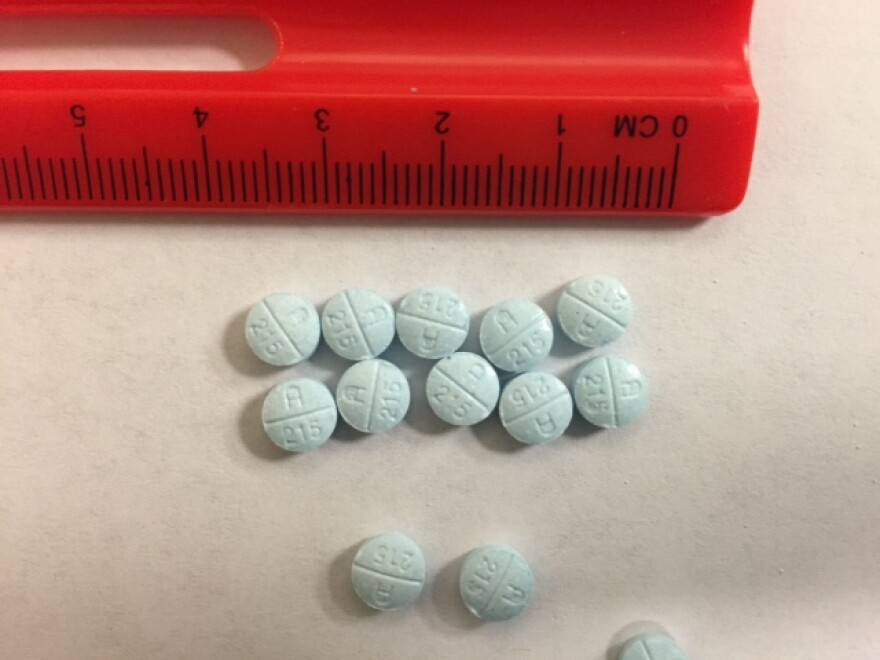MURFREESBORO, Tenn. (WMOT) -- Most Tennesseans are aware that their state has one of the worst illicit drug problems in the nation. What most residents aren’t aware of is that more Tennesseans die of prescription drug overdoses every year than from any other category of unintentional death.
More people die abusing prescription drugs than in traffic accidents, homicides, or suicides. The state’s efforts to address the problem are enjoying surprising success, but there are still significant challenges.
St. Thomas Rutherford Hospital ER physician Brady Allen says prescription overdoses are distressingly common in his ER, as are individuals trying to score pain pills to feed a habit. But Allen says forget what you think you know about prescription addiction.
“There are very functioning addicts that go to work every day,” Allen explained. “There’s also people that are homeless and have chronic medical conditions and struggle with those issues. So there’s a broad range and you cannot pigeon-hole drug addiction or that problem into any group.”
In 2007, Tennessee began to control access to some medications, primarily painkillers and sedatives. In 2012, the state doubled down on that effort, initiating a system to monitor the controlled substance use of individual Tennesseans. That system is called the Controlled Substances Monitoring Database.
Pharmacists enter filled prescriptions in the database, and practitioners are required to check a patient’s history before writing new prescriptions. Dr. Allen says consulting the database takes time, but most doctors understand the need to do so.
“There is a large proportion of people that use controlled substances inappropriately and doctor shop and some of these other practices…and I think that we as good stewards of their health, as providers, we need to make sure that we’re not contributing to that habit,” Allen said.
Three years after its launch, Dr. David Reagan, Tennessee’s Chief Medical Officer, says the state has hard evidence that the Controlled Substances Database is having a significant impact on prescription drug abuse.
“We have seen three years in a row where we have seen significant decreases in doctor and pharmacy shoppers,” Reagan said. “In fact, since 2012…you have a 51% decrease in the number of doctor and pharmacy shoppers in the state.”
Reagan also reports growing buy-in from the doctors, nurses and dentists meant to use the system. He says the number of practitioners consulting the database before prescribing has tripled in the past three years. And the state isn’t bashful about punishing doctors who fail to do so.
“We have had, since July, 2013, a total of 240 disciplinary actions taken by the board related to prescribers of controlled substances,” he reported.
That discipline can range up to loss of license and prosecution. The success Tennessee is experiencing is getting attention. Dr. John Eadie directs Prescription Drug Monitoring Program research at Brandies University. Eadie says Tennessee is a national leader in prescription drug control.
“Tennessee’s is a very robust program,” Eadie said. “You were the second state in the country to implement what we refer to as ‘comprehensive mandate” on prescribers to use the system. So, we congratulation you as a state for doing that.”
Just one recent example of doctor shopping suggests, however, that congratulations may be premature. Stones River Medical in Murfreesboro contacted police recently to report a suspected case of doctor shopping. A database search reportedly revealed a patient asking for pain meds had already had them prescribed by 18 Murfreesboro area physicians. Seven of those prescriptions had been filled in the previous 30 days.
The Tennessee Department of Health was helpful in researching this story but declined to comment on a particular patient’s case. Clearly, however, not every doctor is checking the database as required. And Dr. Alan, the ER physician in Murfreesboro, says making doctor shopping more difficult for addicts may be having an unforeseen side effect.
“There has been an uptick in the amount of heroin abuse, and I think that’s even a national trend, but certainly a local one that I think has been well described within Tennessee and some of the states that have had a crackdown on prescription drug abuse, Allen said.”
In 2016, the State of Tennessee will expand its crackdown on prescription drug abuse. Beginning in July, the senior medical officer at each of the states roughly 300 pain clinics will for the first time be required to be a pain specialist. And that doctor shopper who’d gotten prescriptions from 18 local prescribers? She was arrested for Violation of Probation.


